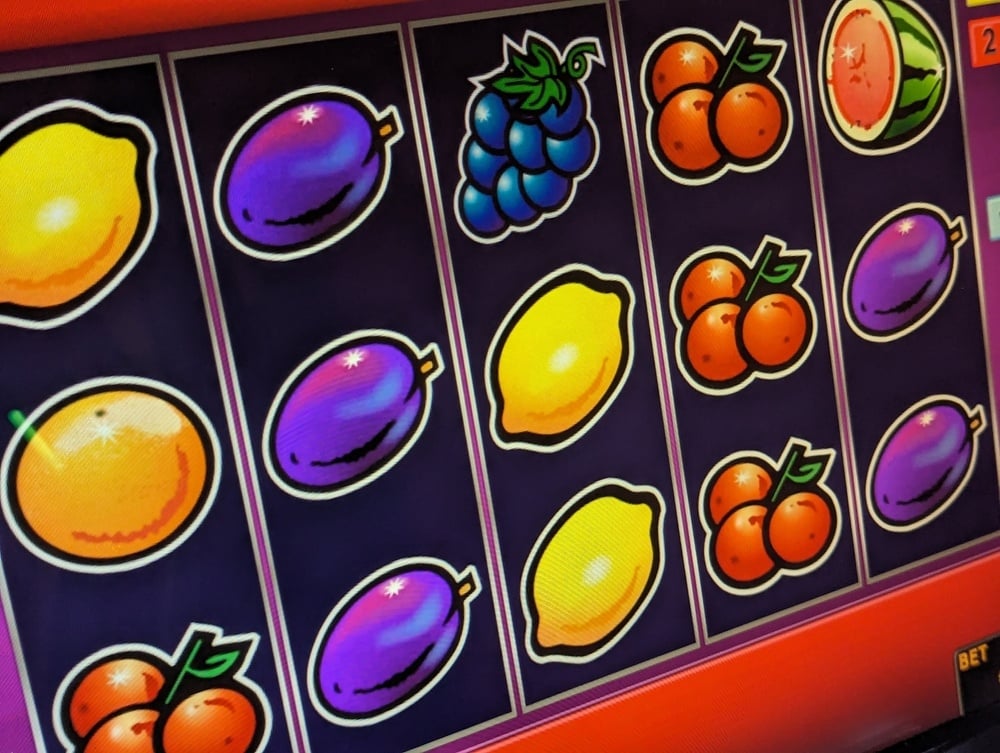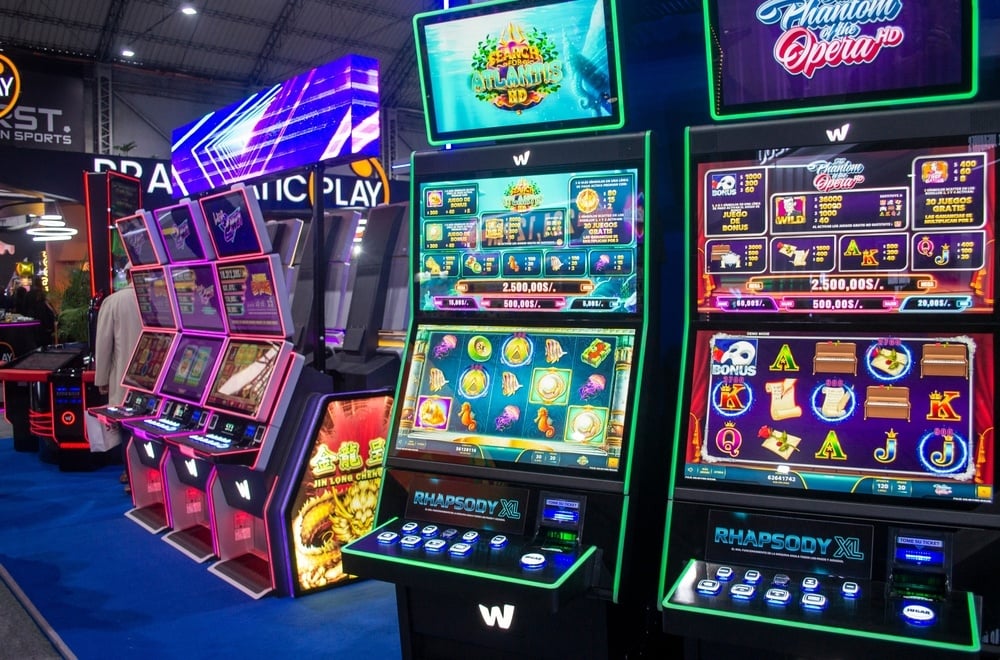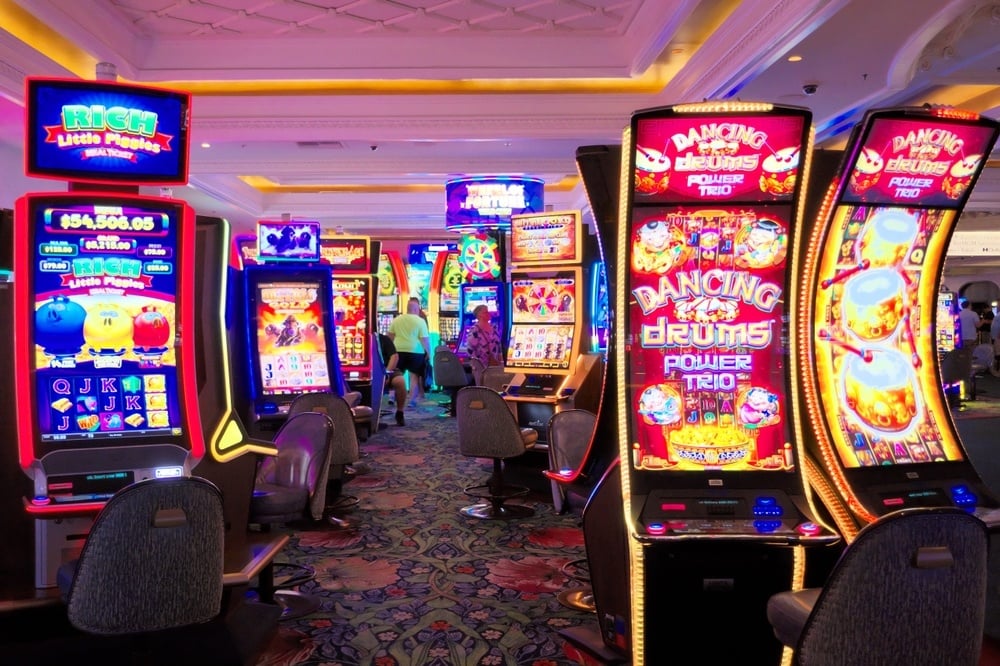Understanding Slot Machine Odds: Strategies to Boost Your Winnings

Key Concepts for Slot Machine Profitability
To make the most of your slot machine experience, it's essential to decode a few core principles that shape your chances of winning:
- Return to Player (RTP): This percentage indicates how much a slot is expected to pay back to players over time.
- Variance and Volatility: These measure how often and how much slots tend to pay out.
- Types of Slot Machines: Classic, video, and progressive slots each offer different odds.
- Reading Paytables: Understanding payout rates for various symbol combinations and features is crucial.
- Maximizing Winnings: Strategic betting, slot selection, and bankroll management help improve your potential outcomes.
Choosing slots with higher RTP and a volatility that matches your risk preference increases your odds of consistent returns. A careful review of each machine’s paytable and bonus elements can also reveal hidden routes to bigger prizes. Finally, disciplined bankroll management-such as setting spending limits and sticking to your plan-lets you play smarter and longer.

Image credit: SNEHIT PHOTO/Shutterstock
Demystifying Slot Machine Odds
Slot machine odds represent the probability of specific outcomes while spinning the reels. Several factors contribute to these odds:
- Game mechanics
- Symbol count
- Number of paylines
Understanding the basics of probability in slot games can inform your choices and enhance your odds of landing a win.
Role of Randomness
Every slot spin is decided by a Random Number Generator (RNG), ensuring that each result is completely independent and unpredictable. The outcome of previous spins has no bearing on future ones.
Probability and the Meaning of Odds
Probability reflects the chance of a particular event occurring, while odds compare the number of ways to win versus ways to lose.
Significance of Paylines
Slots with more paylines offer a greater number of possible winning combinations. However, more paylines commonly lead to smaller but more frequent payouts.
Understanding Volatility
Slot volatility describes the frequency and size of wins:
- Low volatility: Greater number of small wins
- High volatility: Rare, larger payouts
Grasping these basic concepts can empower you to pick games that either stretch your playtime or deliver bigger wins, according to your style.
How Slot Machines Operate: The Science Behind the Spin
Online and physical slot machines rely on technology to guarantee fairness and randomness. But how does this work?
Random Number Generators Explained
RNGs are computerized algorithms running continuously-even between spins-to generate completely random results every time you play. This means no manipulation or memory of past actions, ensuring that each spin has the same chance as the last.
To maintain player trust, most slot games are regularly tested and certified by regulatory bodies, both in casinos and online platforms.

Image credit: Eduardo Vidal Gutierrez/Shutterstock
Decoding Slot Paytables
A slot paytable provides critical information, including:
- Winning combinations and their payouts
- Symbols that unlock bonus features
- Details on wilds, scatters, and free spins
Even two machines that look identical can have different paytable setups, resulting in different payouts. Pay attention to unique symbols or bonus rounds, as these often tip the balance towards larger rewards.
Comparatively, just like some poker games offer higher rewards for more challenging hands, slots may decrease smaller wins in exchange for bigger bonus victories.
How Odds Differ Between Slot Game Types
Several major factors shape the odds and potential returns in slots:
- Volatility level
- Return to Player (RTP)
- Minimum and maximum bet requirements
- Availability of bonus features or special rounds
Out of these, RTP and volatility offer the clearest insight for players seeking to maximize returns. While RTP shows how much the game pays back over extended play (typically ranging from 85% to 98%), volatility influences whether you’re likely to win smaller amounts often or chase infrequent jackpots.
Generally, slots with an RTP above 95% and low-to-medium volatility strike the best balance for frequent and rewarding play. However, RTP is calculated over thousands of game rounds-your results during a single session may differ.
Effective Strategies to Enhance Your Slot Play
While slots are largely chance-based, you can leverage a few strategies to get the most from your experience:
- Favor slots with high RTP percentages (95% or above) and moderate volatility for steady payouts.
- Look for bonus-rich games, particularly those with free spins or multipliers, to give yourself extra chances to win without extra spending.
- Watch a game for a few moments before joining-observe how often it pays out and whether its features suit your playing style or preferences.
- Always set a clear limit on your spend to ensure you’re playing for entertainment rather than chasing losses.

Image credit: eskystudio/Shutterstock
Although strategy and game choice can extend your play and potentially increase your cash-out potential, remember, slot outcomes are random and designed so the casino eventually profits. Let your focus remain on enjoyment and responsible play.
Busting the Most Common Slot Machine Myths
Myth 1: Machines Have Hot and Cold Streaks
Reality: Each spin remains independent due to the RNG. Streaks are illusions created by random outcomes.
Myth 2: Timing Affects Payouts
Reality: The time of day has no impact on win potential, as all results are generated randomly.
Myth 3: Higher Bets Mean Better Odds
Reality: Bigger wagers might unlock certain features or qualify for progressive jackpots, but don’t actually improve your odds of a win.
Myth 4: Near Misses Signal an Upcoming Win
Reality: Near-misses are a product of chance and don’t influence future results.
Myth 5: Playing Longer Guarantees a Payout
Reality: No matter how much time or money you invest, the odds of winning do not increase. Consistency and patience may pay off-but only by luck.

Image credit: steve estvanik/Shutterstock
Your Top Questions About Slot Machine Odds Answered
What are the typical odds of winning on a slot machine?
Slot odds depend on the game's RTP, which usually ranges from 85% to 98%. Higher RTPs are typically found on machines advertised as "loose slots."
Are slot machines truly random?
Yes. All modern slots use random number generators to make outcomes unpredictable and unbiased on every spin. Nonetheless, the overall design-such as RTP and number of combinations-affects long-term odds.
Do online slots pay better than physical machines?
Usually, yes. Online slots frequently offer higher RTPs (sometimes up to 99%) due to their lower operating costs, resulting in more favorable odds for players.
Is there a hidden trick to winning on slots?
There’s no guaranteed secret to beating slot machines, but your chances improve by selecting games with favorable RTPs and volatility, leveraging bonuses and promotions, betting the necessary amounts for feature eligibility, and, most importantly, playing responsibly for entertainment-not profit.













